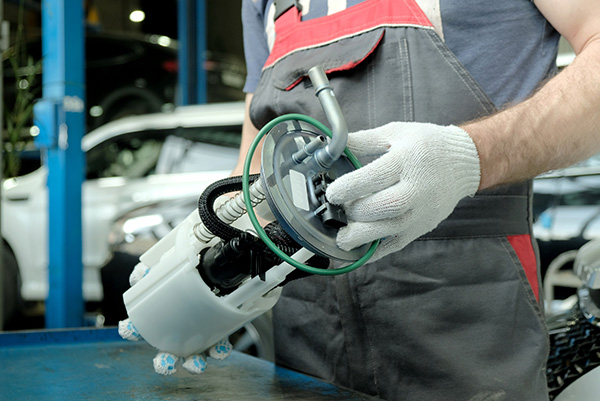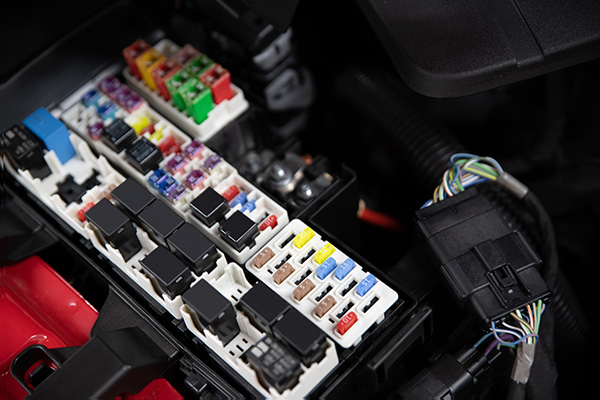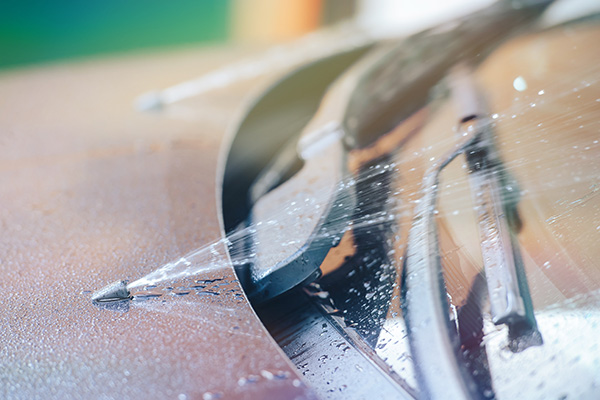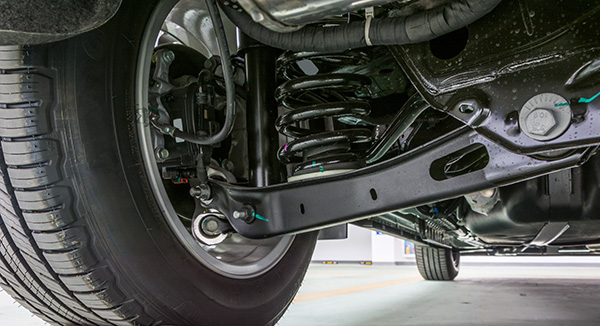Posted on 3/28/2025

If your car isn’t getting enough fuel, you might notice it struggling to start, hesitating when you accelerate, or running rough at idle. Low fuel pressure can occur for several reasons, from a clogged fuel filter to a failing fuel pump. While it might start as a minor inconvenience, ignoring the issue can lead to serious performance problems—or even leave you stranded. Catching fuel system issues on time can help you avoid costly repairs and keep your car running reliably. The Role of Fuel Pressure in Your Engine Your engine relies on a precise mixture of air and fuel to operate. The fuel system—made up of the fuel pump, filter, injectors, and pressure regulator—ensures the right amount of fuel reaches the combustion chamber at the correct pressure. If the pressure drops too low, the engine doesn’t get enough fuel, causing misfires, power loss, and poor efficiency. In extreme cases, the vehicle may not start at all. Common Caus ... read more
Posted on 2/28/2025

Modern vehicles rely heavily on complex electrical systems to power everything from headlights and dashboard displays to power windows and ignition systems. While advancements in automotive technology have improved safety and convenience, they’ve also made diagnosing and repairing electrical issues far more challenging. Unlike mechanical problems, which often have clear physical signs of wear or failure, electrical issues can be intermittent, hidden behind panels, or caused by software malfunctions. At NOLA Automotive Repairs, we’ve seen firsthand how tricky electrical problems can be to track down, especially when symptoms seem to come and go. If your car is experiencing unexplained warning lights, flickering headlights, or a dead battery that shouldn’t be dead, the problem could be more complicated than it appears. The Challenge of Diagnosing Electrical Issues One of the biggest difficulties with electrical problems is finding th ... read more
Posted on 1/31/2025

Car insurance is one of those necessary expenses that can feel like a burden, especially when the premiums seem unreasonably high. You might wonder why insurance companies charge so much and what factors go into calculating those sky-high rates. It’s not just about covering accidents—it’s a complex combination of risks, statistics, and regional influences. Let’s see why car insurance often comes with a hefty price tag and what you can do to potentially lower it. Risk Assessment Car insurance costs are rooted in risk assessment. Insurance companies evaluate how likely you are to file a claim based on various factors. Your driving history plays a significant role here. If you have a clean record, you’re considered a lower risk, while tickets, accidents, or DUIs can raise red flags and premiums. Another factor is the type of vehicle you drive. High-end cars, sports cars, and vehicles with expensive parts tend to cost more to insure. These ... read more
Posted on 12/20/2024

Your windshield wiper fluid is a vital component for maintaining visibility and safety while driving. However, discovering a leak in your wiper fluid system can be frustrating and potentially hazardous. Let’s take a deeper dive into the causes of windshield wiper fluid leaks and see what is the best way to address them. We want to help you keep your windshield clean and your vehicle in top condition. Common Causes of Windshield Wiper Fluid LeaksDamaged Reservoir: One of the primary culprits behind windshield wiper fluid leaks is a damaged reservoir. Over time, the plastic reservoir can develop cracks or holes due to exposure to harsh weather conditions, road debris, or accidents. A damaged reservoir allows the fluid to leak out, leading to a depleted wiper fluid supply. Faulty Pump: The windshield wiper fluid pump is responsible ... read more
Posted on 11/29/2024

Feeling your car shake or vibrate as you drive can be unsettling, especially when you’re not sure what’s causing it. Car vibrations can range from a minor nuisance to a sign of a more significant issue under the hood. Whether it's a slight tremor when idling or a full-blown shake at high speeds, vibrations are a way for your car to tell you that something isn’t quite right. So, what are the common culprits behind these vibrations? Let’s explore some of the most frequent causes and what you can do to address them. The Role of Your Tires and Wheels One of the most common reasons your car might be vibrating is an issue with the tires or wheels. If your car starts to shake at certain speeds—especially around 50 to 70 miles per hour—it could be due to an imbalance in the wheels. Over time, the weight distribution on your tires can become uneven, causing them to wobble as they rotate. This leads to that familiar vibrating sensation y ... read more